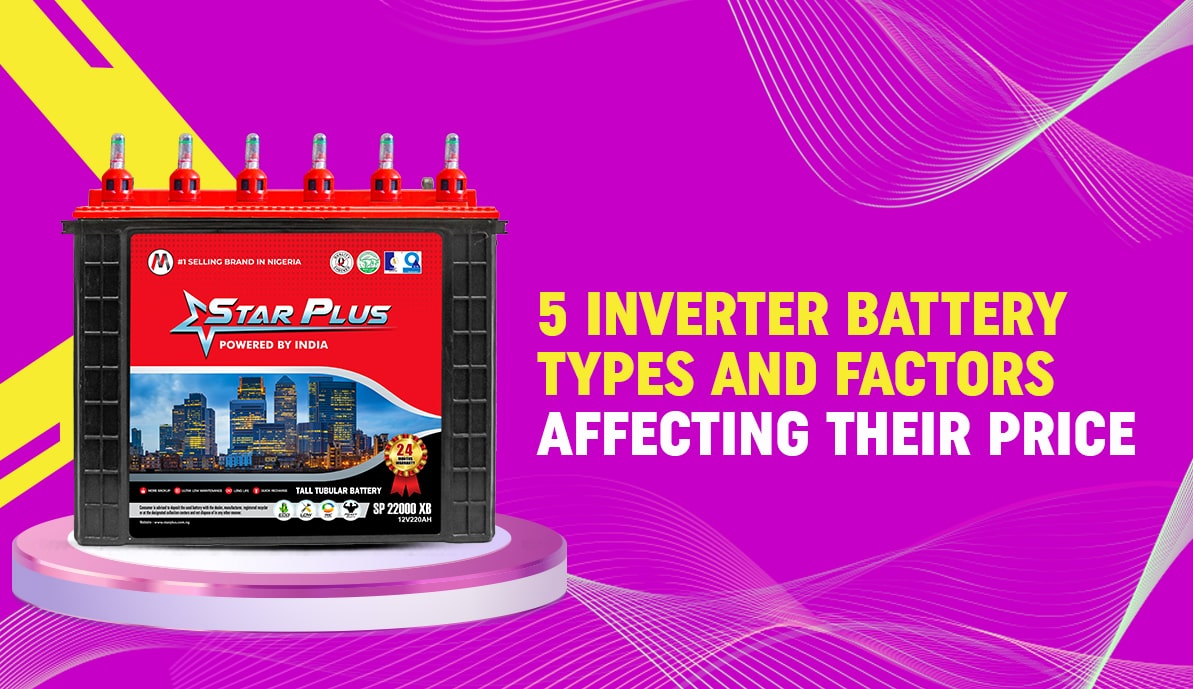In times of electrical outages, an inverter battery becomes a lifeline, providing crucial backup power to homes and businesses. This device stores electricity when the grid is active and releases it as AC power when the main power source fails. The primary objective of this essential equipment is to ensure an uninterrupted electricity supply, thereby keeping our daily operations running smoothly.
When you need a battery for use in places like Nigeria, where there are frequent power outages for long durations, you can opt for a 12v 220ah tubular battery for higher efficiency.
An Overview of Inverter Batteries
An inverter battery is a pivotal component of an inverter system, serving as a backup power source during electricity outages. When the main power supply is available, the inverter charges the battery. However, during a power cut, the battery’s stored energy is converted into AC through the inverter, making it usable and offering continuous power to connected devices. The rated capacity of the battery shows how long it can sustain power during outages.
These batteries find common use in homes, offices, and industries, providing uninterrupted power supply and safeguarding against disruptions. Regular maintenance and proper usage are imperative to maximize the battery’s lifespan and performance.
Types of Inverter Batteries
Want to know the different types of inverter batteries? Check them out below!
Lead-Acid Batteries: Widely utilized due to their affordability and reliability, lead-acid batteries contain plates made of lead and lead dioxide immersed in sulfuric acid.
Lithium-Ion Batteries: Lithium-ion batteries are lightweight and offer faster charging and discharging capabilities.
Gel Batteries: These batteries use a gel-like electrolyte, making them spill-proof and suitable for indoor use. They exhibit better tolerance to deep discharges, making them ideal for frequent power cuts.
Tubular Batteries: A type of lead-acid battery with thicker plates, tubular batteries are more durable and have higher efficiency, such as a 12v 220ah tubular battery, making them suitable for heavy-duty applications.
Maintenance-Free Batteries: Also known as VRLA (Valve-Regulated Lead-Acid) batteries, these require no maintenance, are sealed, and have safety features to prevent overcharging. They are user-friendly and safer for indoor use.
Understanding the Cost of Inverter Batteries in Nigeria
The cost of an inverter battery in Nigeria varies. Several factors influence the pricing:
Battery Capacity: Higher capacity batteries with more power storage generally cost more due to increased materials and technology requirements.
Battery Type: Different battery technologies, such as lead-acid, lithium-ion, or gel, have varying costs based on their performance and materials.
Brand and Quality: Established and reputable brands often charge higher prices due to their greater reliability and performance.
Warranty and Lifespan: Batteries with longer warranties or longer lifespans may have higher upfront costs but could be more cost-effective in the long run.
Demand and Supply: Market forces, including demand and availability of batteries, can influence prices. Higher demand or limited supply may lead to increased costs.
Want to Buy Tubular Inverter Battery for Your Home and Office?
Benefits of Inverter Batteries
Uninterrupted Power Supply: Inverter batteries ensure backup power during power outages, keeping essential devices and appliances running smoothly.
Energy Efficiency: They contribute to electricity savings by efficiently converting DC power from the battery into AC power, reducing energy wastage.
Quiet and Environmentally Friendly: Operating silently without producing harmful emissions, inverter batteries contribute to a cleaner and quieter environment.
Flexible Usage: They offer the flexibility to power various devices, from small electronics to larger appliances, making them suitable for both residential and commercial purposes.
Cost-Effective: Despite the initial investment, in the long run, inverter batteries can save money on electricity bills and protect sensitive electronic equipment from potential damage caused by sudden power fluctuations.
Considerations Before Buying an Inverter Battery
Capacity: Check the battery’s capacity, usually measured in ampere-hours (Ah), which shows how long it can power your devices during a power outage. If you are living in places like Nigeria, where there are frequent power outages, you will do better if you opt for a high-capacity battery like a 12v 220ah tubular battery.
Battery Type: Consider different types of batteries, such as lead-acid or tubular, weighing factors like cost-effectiveness and maintenance requirements.
Battery Size: Your tubular battery needs some space for installation. For instance, a 220ah tubular battery dimension is quite large and requires a lot of room. So, make sure you have the space allotted for inverter battery installation.
Inverter Compatibility: Ensure the battery is compatible with your existing inverter, as certain batteries may not work optimally with specific inverters.
Charging Efficiency: Look for batteries with high charging efficiency to ensure faster charging and minimize energy wastage.
Warranty and Brand: Consider the warranty offered by the manufacturer and opt for reputable brands known for their reliable products.
Understanding the functions, types, costs, and benefits of inverter batteries is crucial for making informed decisions when purchasing these essential devices. So, opt for a battery that meets your requirements, which will only be the wise thing to do.



0 Comments